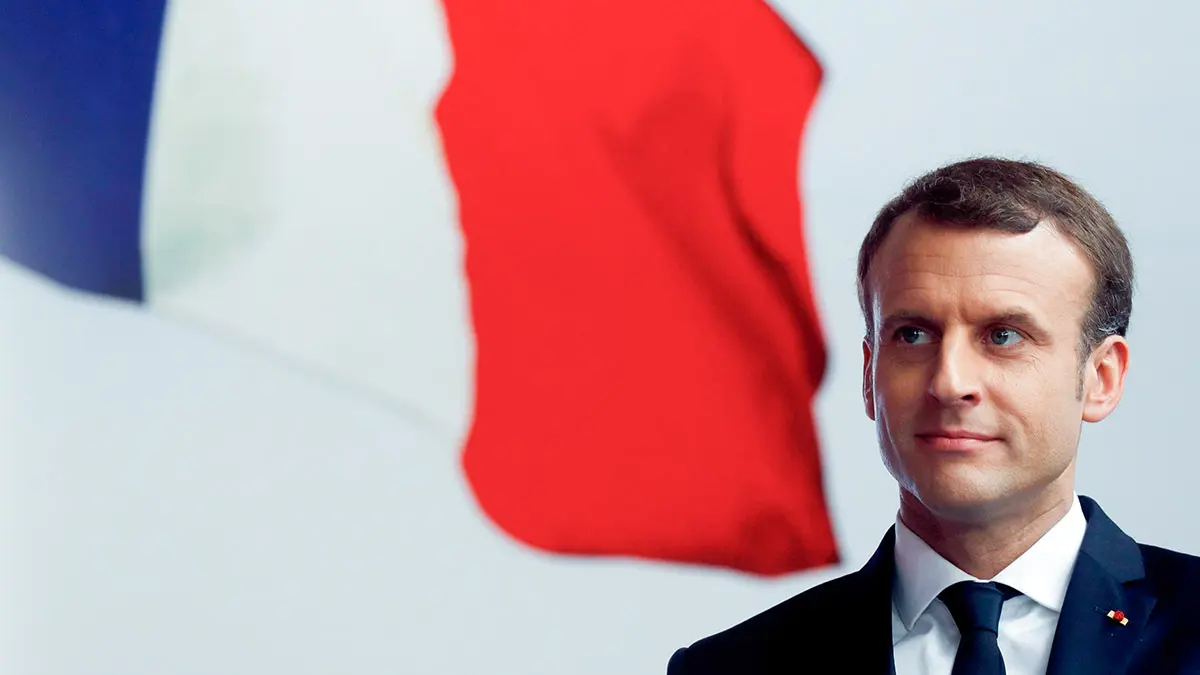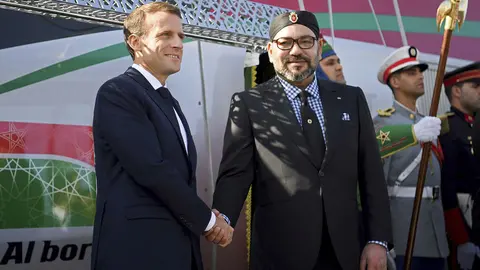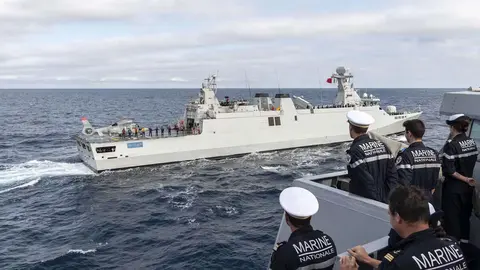Macron's visit to Morocco will strengthen relations between Rabat and Paris

French President Emmanuel Macron is scheduled to pay an official visit to Morocco from 28 to 30 October, Morocco's royal palace announced.
Ties between the two nations improved following Paris' support in July for Morocco's sovereignty over the disputed territory of Western Sahara.
‘This visit reflects the depth of bilateral relations, based on a solid and deeply rooted partnership,’ the royal palace said in a statement.
In a letter dated 30 July, Macron told King Mohammed VI that Rabat's autonomy plan was the ‘only basis’ for reaching a solution to the nearly 50-year conflict with the Polisario Front over the fate of the Moroccan Sahara, and that ‘the present and the future of the Sahara are within the framework of Moroccan sovereignty’.
The French position ends a period of diplomatic stalemate in relations between the two countries in recent years, when Rabat pressured France to follow the lead of Washington, which recognised the kingdom's sovereignty over the territory in late 2020, in exchange for the resumption of diplomatic relations between Morocco and Israel.
In his 2022 speech, the Moroccan king called on ‘certain states, among Morocco's traditional partners and new ones, whose positions on the Moroccan Sahara are ambiguous, to clarify their positions and reconsider them in a way that leaves no room for doubt’.
Morocco controls 80% of the territory, which the UN considers a ‘non-self-governing territory’, while the Algerian-backed Polisario Front, in conflict with Rabat since 1975, claims sovereignty over it.
Under Moroccan pressure, Macron sought a rapprochement with Algeria, while the latter broke off diplomatic relations with Rabat in 2021, provoking intense anger in Morocco.
Relations between Rabat and Paris were also strained following France's decision in 2021 to reduce the number of visas granted to Moroccans, which provoked harsh criticism in Morocco, before Paris retracted this decision a year and a half later.
On the French side, the authorities expressed their discontent after a journalistic investigation revealed that Morocco had targeted the phone numbers of Macron and his ministers in 2019 with the Israeli spy software ‘Pegasus’, an accusation that Rabat denied.
These tensions have led Macron to postpone his visit to Morocco several times since 2022, although he has not visited the kingdom since 2018.
The two countries have historically enjoyed strong economic ties, but the warming of their diplomatic relations opens up new economic and commercial prospects for French companies that have been affected in recent years by the recent tensions.
Two days after the official publication of Macron's letter to the Moroccan monarch, French engineering firm Egis, in partnership with its counterpart Systra and Moroccan firm Novec, won a contract to extend the high-speed rail line between the cities of Kenitra and Marrakech.
The Moroccan Sahara, which has vast solar and wind energy resources, is a strategic area for Morocco's economic growth as it moves towards renewable energy and hopes to find a place in the green hydrogen market.
French and Moroccan companies have begun work in the Moroccan Sahara, including the French energy group Engie, which is currently building a seawater desalination plant in Dakhla, in partnership with the Moroccan company Nareva.
But the French decision to support Morocco's position on the Western Sahara conflict has strained France's relations with Algeria, which announced the withdrawal of its ambassador from Paris at the end of July.
Relations between Rabat and Paris have improved significantly since the 2021 crisis. French Prime Minister Gabriel Attal was scheduled to visit Rabat between 3 and 5 July to meet with Moroccan Prime Minister Aziz Akhannouch. However, the visit was postponed following President Macron's decision to dissolve parliament and call elections.
Last February, French Foreign Minister Stéphane Séjourné revealed Paris's proposal to establish a partnership for the next thirty years with Morocco, stressing that the Kingdom of Morocco has made great development at all levels under the reign of King Mohammed VI.
There are a number of outstanding issues between Rabat and Paris that require a decisive decision, in particular the question of Western Sahara.
During a meeting with his counterpart Nasser Bourita in Rabat at the end of February, Séjourné offered his country's support for Morocco's autonomy plan as a possible solution to the Western Sahara conflict.










